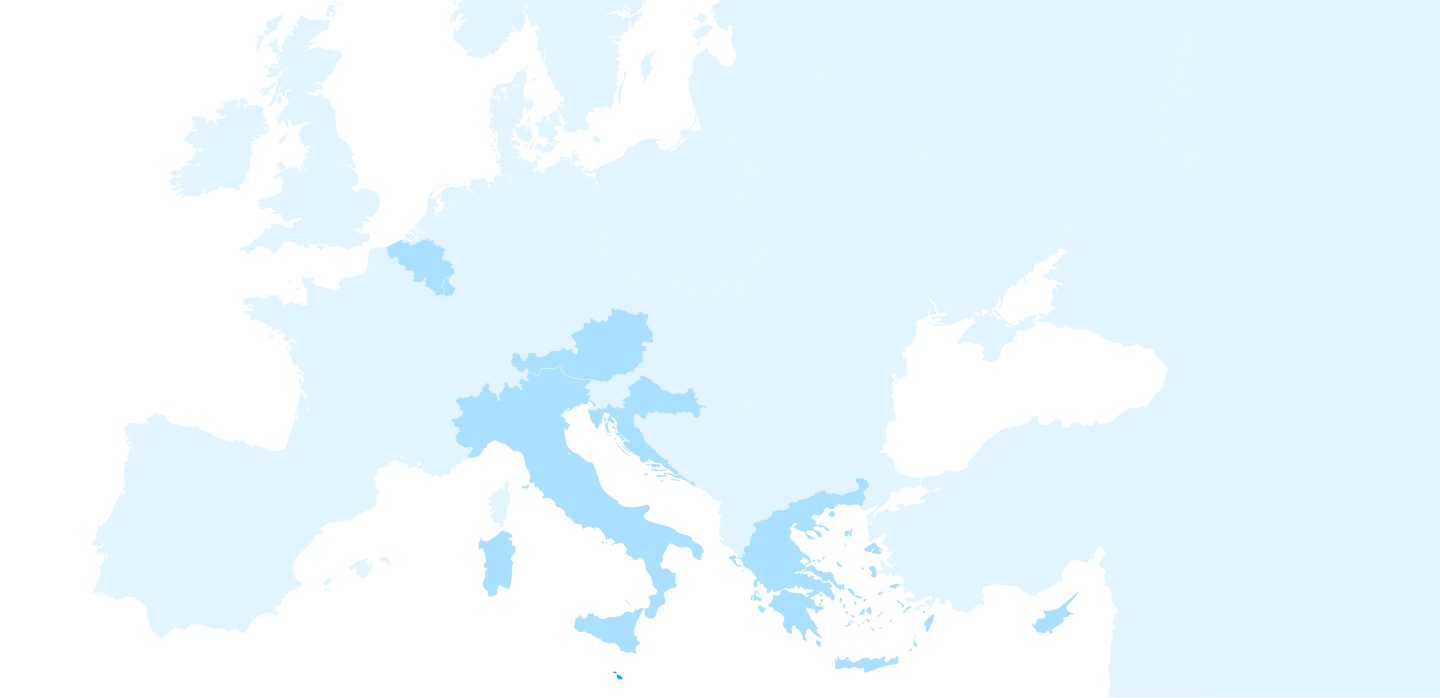Four pilots, one main goal
Pilots
Project implementation involves testing the validity of the IPS Holistic Framework in real environment. Four pilot cases from Austria, Croatia, Greece, and Malta will be the test bed for the Framework with services that represent a different potential interpretation of the IPS Holistic Framework.
Modernisation and integration of the digital common family household public service in Malta
The modernisation and integration of the digital common family household public service is envisaged affecting 200,000 householders.
- government as a platform
- inclusive, better (and ethical) public service
- guidance for co-creation
- once-only principle
- digital-by-default principle
- user centricity
- sustainability business plan
- process management
- web accessibility directive


Malta information technology agency
Malta
Use case problem statement
Malta is championing in m-government, as is currently providing a large proportion of its digital public services through mobile applications5. The Malta Information Technology Agency (MITA) supports the government implementation of various Information Systems within many business domains in the public sector, such as Taxation, Social Security and Healthcare. These domains operate under the stewardship of different governmental bodies, ministries, or departments, thus resulting in data silos which are not interoperable in an agile way. Currently any efforts that require the use of multiple registries (databases), such as integrated public services, require a considerable logistical operation in order to obtain the relevant information. For example, a recent use case required the identification of family units in households in Malta for the government to issue a one-time payment to compensate for the increase of bread and milk prices registered last year as announced in the Malta Government Budget 2020. This task required the merging of three datasets from three different departments, where each used different schemas and language (English and Maltese). This challenge puts at risk the timeliness of implementation of social measures that a dynamic economic scenario may require and hinders the provision of proactive services. To solve these interoperability issues and administrative burden, it is vital to have the capability of extracting and defining family units within households in an agile manner, where information from various entities will be used in line with specific requirements for the provision of IPS. Through this pilot, MITA will exploit the co-creation roadmaps, guidelines, governance models, and tools that will be developed in the framework of inGov to modernise this family household public service whilst also taking into account input and feedback from the relevant stakeholders.

Use Case Definition & Design
Public Service Consumers (Beneficiaries): Citizens of Malta, in 200,000 households (made up of approximately 0.5M individuals), are directly affected by the family household public service when eligible for any social benefit.
AS-IS: Relevant data for the identification of Maltese family households currently exists in non-interoperable siloes that require considerable effort to integrate. This results in a service that is not efficient and not accurate, thus requiring the need of further corrective measures (e.g. the setting up of a complaint service where citizens can communicate any non-received social benefits).

Malta
TO-BE (Co-created Integrated PS description)
The modernisation of the family household public service involves the creation of an IPS through the development and co-creation of a common registry that integrates Taxation, Social Security and Public Registry datasets that are currently siloed. This IPS shall be used to identify unique family households (units) in order to determine all social security and taxation entitlements being consumed by each family.
Stakeholders of IPS co-creation: The definition and design of the proposed IPS shall include the involvement of the respective government entities who own the datasets in question, namely the Ministry for Finance (MFIN), the Ministry for the Family, Children’s Rights and Social Solidarity (MFCS), ARMS (a private limited liability company that handles the Utility Retail and Supply Sector) and Identity Malta (IM). Additionally, citizens will be involved in exploiting the inGov IPS co-creation models.
Existing Data: Data to be used include over 1 M social security records owned by MFCS, over 1 M taxation records owned by MFIN, over 2M citizen registry records owned by Identity Malta, over 1 M Utility Retail and Supply records owned by ARMS.
Existing models: In this pilot, the following inGov results will be utilised: the inGov IPS co-creation models along the inGov IPS co-creation governance models (roadmap, organisational models, guidelines); the inGov platform and tools for mobile apps development.
Possible Obstacles: (a) Resistance to change, (b) sensitive personal data interchange concerns.

Reusability
This pilot can be reused to modernise various public services that currently have interoperability issues as well as for the creation and provision of new services. The customised IPS co-creation and governance model that we will be testing in the framework of inGov shall provide a capability supported by information systems to merge multiple registries for future social efforts that require insights from the mentioned datasets and will facilitate the inclusion of other datasets (e.g., Healthcare) in line with future requirements. This will enable the provision of proactive services as well as the use of resulting information to impact any policy making and decision taking.
Solutions to be explored/developed in the project: (a) A digital-by-default IPS for the public sector according to the once-only principle that will be based on the modular inGov platform, which supports the new IPS governance models based on emerging IT paradigms for accessible mobile and apps development, (b) customised organisational models, a roadmap and guidelines for IPS co-creation and delivery that will be based on inGov results.
Accessible Mobile technologies necessity: The implementation of the Web Accessibility Directive, will be supported by enhanced cooperation on digital accessibility between various stakeholders. This will result in scalable and more affordable accessibility solutions, as well as empowering all citizens in an inclusive way.
IPS co-creation governance necessity: Co-creation is vital in order to achieve the required information from the relevant public sector stakeholders, since the existing registers are currently owned and maintained by different entities. This will enable the once-only principle to be implemented, where all citizens provide the standard information to the respective public administrations only once.